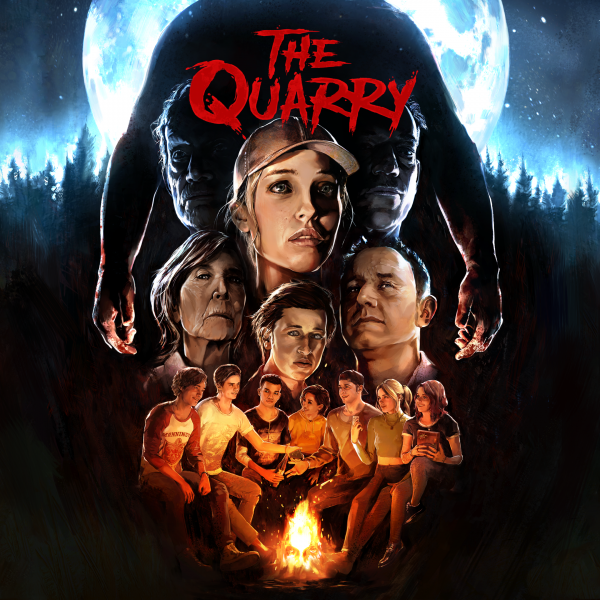Supermassive Games Wants To Avoid Problematic Tropes In The Quarry

In most ’70s and ’80s slashers, the rules are clear: if you have sex, you die. If you don’t have sex, you live. Take the original Halloween, one of the more famous examples of the trope. Laurie Strode (Jamie Lee Curtis) is a slightly nerdy, romantically inept character. While her friends Annie and Lynda (played by Nancy Kyes and P.J. Soles, respectively) are with their boyfriends, Strode is stuck babysitting. Annie and Lynda are brutally murdered by killer Michael Myers – the former on her way to pick up her boyfriend, and the latter immediately post-sex. Strode, a virgin, fights back, ultimately being saved and avoiding death.
Whether the filmmakers, Debra Hill and John Carpenter, had an intentionally sex-negative message in their film or not (according to them, they didn’t), Halloween falls into a massive category of slasher films that play by similar rules. In fact, the trope is so common that professor and film scholar Carol J. Clover coined a term for it in her 1992 book Men, Women, and Chain Saws: Gender in the Modern Horror Film: the “final girl,” or the innocent character who gets to survive by the end of the film.
There has been a lot of writing about the evolving final girl trope since it was coined in 1992. But suffice it to say: in its earliest incarnations, such as the Halloween example above, it’s primarily viewed these days as a harmful stereotype. The films are punishing characters – mostly teenage girls, though boys frequently get it just as bad – for engaging in the kind of activity audiences applaud the male characters of a John Hughes movie (Breakfast Club, writer for Pretty In Pink) for. In some cases, the girls might also be bullies – such as in 1983’s Sleepaway Camp – as an added justification for their death, but the fact remains: have sex, then die. You are punished for your transgressions – no matter how normal they are.

In 2022, this doesn’t meet modern sensibilities. And that’s not lost on the team at Supermassive Games, developer of the upcoming game The Quarry, which strands a group of teenagers at an empty summer camp. According to creative director Will Byers, the team is taking ample inspiration from movies like Friday the 13th (which has its final girl: Alice) and the aforementioned Sleepaway Camp (which actually eschews the final girl trope in its own unique way, kind of), and many other slashers. However, homaging these classic films doesn’t mean pulling from their tropes without considering how modern audiences may receive them. Even though the setting may be familiar, the rules this time are different.
“We don’t want to feel trapped, but we do want to be aware that people’s sensibilities are different and to be sensitive to stuff,” Byers tells us. “We don’t have to be asses about this stuff, right? We can just go, ‘Okay, that’s a trope, let’s use that trope.’ Truth-or-dare. We can use that as a trope – it’s a really good trope. But what you can’t do, is you can’t have people willy nilly just going off and engaging in some sort of physical contact with somebody just because they’re playing truth-or-dare, without some sort of acknowledgment to consent and stuff like that. We are very, very aware of that stuff. It doesn’t hamper us. It’s just being grown-up, really, about this stuff now.”
Byers says The Quarry doesn’t engage in “transgression punishment.” While he admits there are nods to the past, the game doesn’t have clearly defined rules like the movies above. “We were very clear about not putting our morality into anything,” Byers says. “Any of the choices you get are your choices. We offer them to you without judgment or without any, ‘If you choose this, you win; if you choose this, you die.’ That’s not the way it works. That’s not in our interest to do that.”
Whether or not The Quarry pulls any of this off remains to be seen. All we’ve actually seen of the game at the time of writing is a brief reveal trailer. Nevertheless, it’s heartening to know the team is, at least according to Byers, considering how and when some classic tropes should evolve with the times. It’s possible to still make a bloody, brutal horror story without falling back on tired cliches about sex. If The Quarry makes good on Byers’ word, then it has the potential to be a fun entry into the slasher canon.




